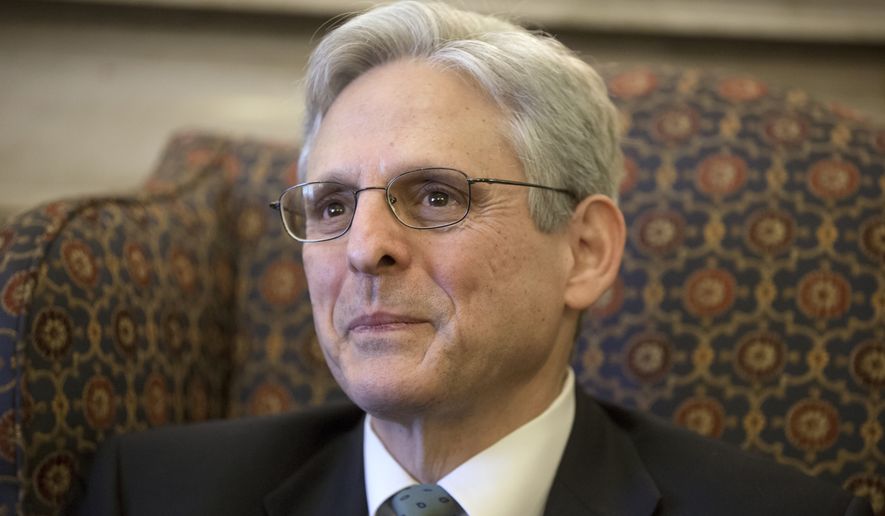An analysis of Supreme Court nominee Merrick Garland’s judicial decisions on labor disputes has found that he nearly always sides with unions.
The onlabor.org website, a blog run by Harvard Law School professors Benjamin Sachs and Jack Goldsmith, found that Judge Garland has written the majority opinion in 22 cases that considered appeals of National Labor Relations Board decisions between 1997 and this year. He sided with the NLRB in 18 of those decisions, agreeing with the agency’s interpretation that an employer committed unfair labor practices.
In all of those cases, the blog said, “deference to the NLRB has had favorable consequences for labor and unions.”
Even in the four cases in which he did not defer entirely to the NLRB, Judge Garland’s decisions “suggest an outlook that is generally favorable to union activity,” the analysis found.
In two of these four cases, for example — Carpenters and Millwrights, Local Union 2471 v. NLRB (2007) and Guard Publishing Co. v. NLRB (2009) — Judge Garland “upheld the aspects of the NLRB’s decisions that were favorable to the union involved, and overturned only the part of the NLRB’s decision in each case that was favorable to the employer.”
President Obama nominated Judge Garland, chief judge of the Court of Appeals for the District of Columbia, last week to fill the vacancy created by the death of conservative Justice Antonin Scalia. Senate Republicans say they won’t allow a vote on the nomination, preferring to wait for a new president to nominate a candidate early next year.
The White House is portraying Judge Garland as a moderate not influenced by ideology; conservative activists are characterizing him as a liberal who would shift the balance of the high court to the left.
Judge Garland’s writings show a “strong preference” for agency precedent, the analysis said. In a 2006 ruling in Ceridian Corp v. NLRB, for example, he said the Court of Appeals should not reverse the agency’s findings unless its determinations are “hopelessly incredible,” “self-contradictory” or “patently unsupportable.”
“Although Judge Garland’s decisions speak primarily of his deference to the NLRB, the effect of that deference is favorable to labor and unions,” the blog post said.
• Dave Boyer can be reached at dboyer@washingtontimes.com.




Please read our comment policy before commenting.